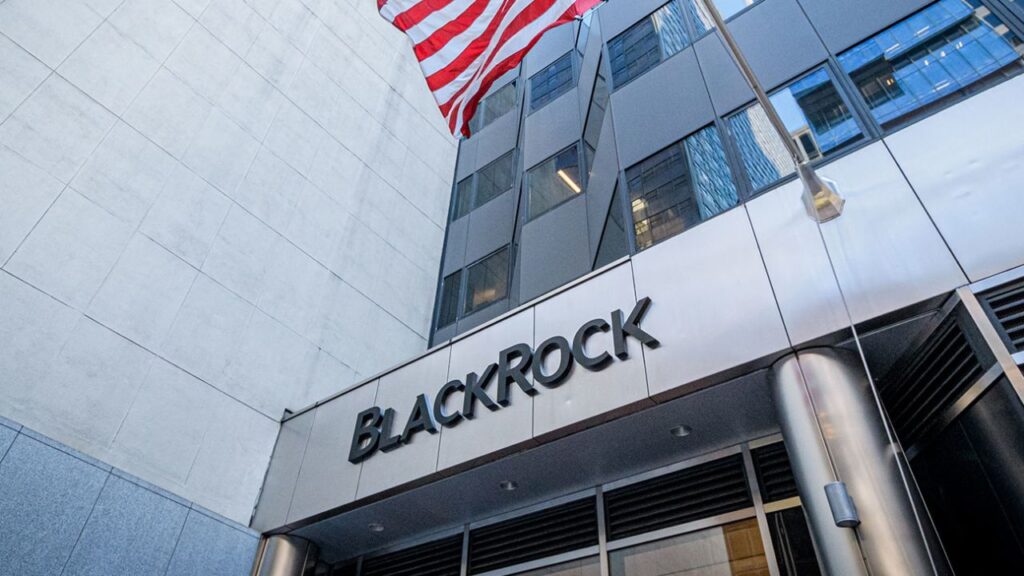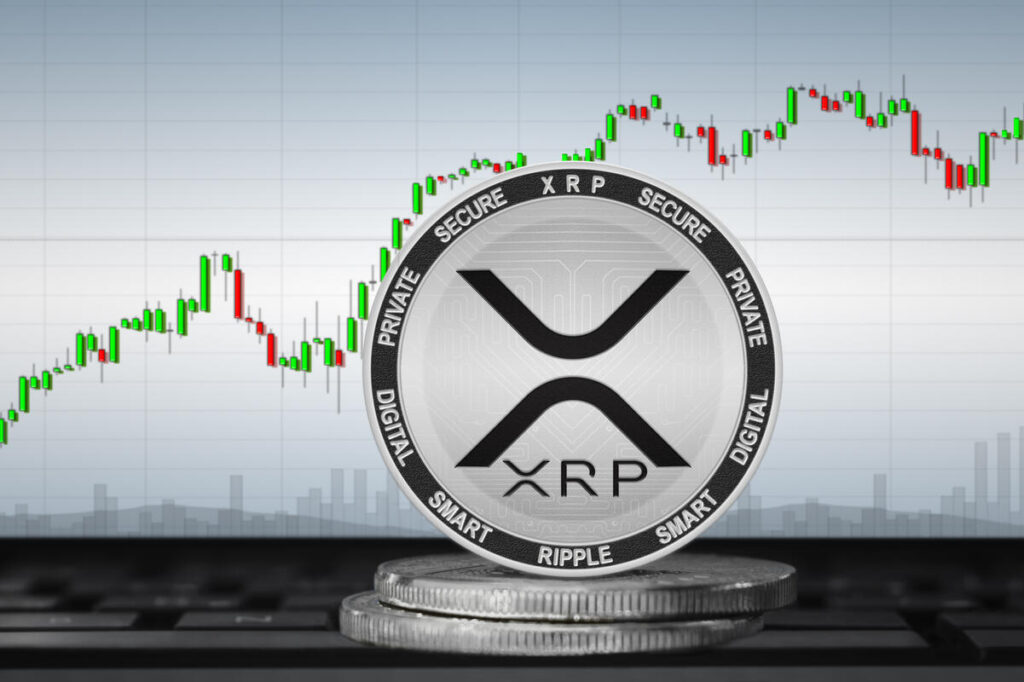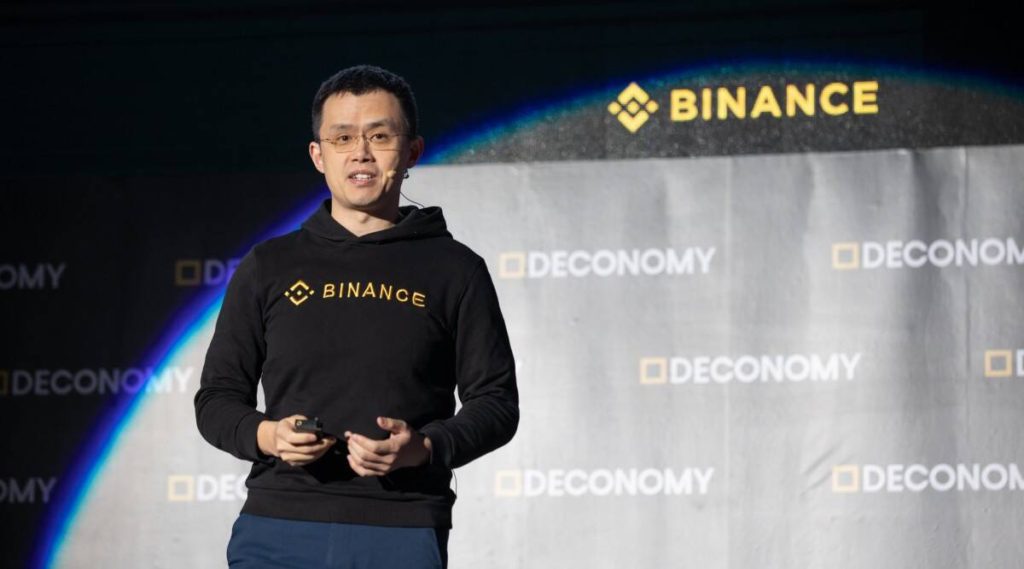BlackRock, a leading global investment management firm, has raised concerns about the treatment of spot-crypto and crypto-futures exchange-traded fund (ETF) applications by the U.S. Securities and Exchange Commission (SEC).
BlackRock recently confirmed its plan to launch a spot-Ether (ETH) ETF called the “iShares Ethereum Trust.”
The firm’s application, submitted by Nasdaq on November 9 through the 19b-4 form, questions the SEC’s handling of spot crypto ETFs, arguing that the agency’s reasons for consistently denying these applications are based on incorrect regulatory distinctions between futures and spot ETFs.
The SEC has not yet approved any spot-crypto ETF applications but has granted approval to several crypto futures ETFs.
The SEC has cited the supposedly superior regulation and consumer protections provided under the 1940 Act for crypto futures ETFs, in contrast to the 1933 Act that covers spot-crypto ETFs.
The agency also appears to favor regulatory and surveillance-sharing agreements with the Chicago Mercantile Exchange’s (CME) digital asset futures market.
READ MORE: Nigeria and Raspberry Pi Foundation Collaborate to Launch Code Clubs
BlackRock disputes the relevance of the SEC’s preference for the 1940 Act, arguing that it places restrictions on ETFs and ETF sponsors rather than on the underlying assets of the ETFs.
The firm contends that the distinction between the registration of ETH futures ETFs under the 1940 Act and spot ETH ETPs under the 1933 Act is essentially meaningless in the context of ETH-based ETP proposals.
BlackRock emphasizes that since the SEC has approved crypto futures ETFs via the CME, it has effectively acknowledged the CME’s ability to detect spot-market fraud that could impact spot ETPs.
Therefore, BlackRock believes that the SEC lacks a justifiable reason to reject its spot-Ether ETF application under its current regulatory framework.
Many crypto and ETF analysts anticipate that the first SEC approval of a spot crypto ETF, possibly related to Bitcoin, is imminent.
Bloomberg ETF analysts James Seyffart and Eric Balchunas even predict a 90% chance of approval before January 10 of the following year, signaling the potential expansion of the crypto ETF market.
Attorney John Deaton, who represents XRP holders in the ongoing legal battle between Ripple and the U.S. Securities and Exchange Commission (SEC), has presented a compelling argument suggesting that the expected $770 million disgorgement penalty against Ripple is highly unlikely.
Deaton’s case is built on several key factors that could influence the court’s decision in favor of Ripple.
A critical point in Deaton’s argument is the Supreme Court’s Morrison ruling, which restricts the SEC’s jurisdiction to sales conducted within the United States.
This is particularly significant as Ripple’s XRP sales in various international markets, including the United Kingdom, Japan, and Switzerland, are currently under scrutiny. Importantly, the legal status of XRP in these foreign jurisdictions supports Ripple’s position.
For instance, regulatory authorities such as the Financial Conduct Authority (FCA) in the United Kingdom and the Financial Services Agency (FSA) in Japan have not classified XRP as a security.
This classification is crucial because it allows for the legal continuation of XRP sales in these regions, presenting a significant challenge to the SEC’s pursuit of disgorgement for global transactions.
Furthermore, Deaton emphasizes that the legal action against Ripple is primarily a regulatory dispute rather than a fraud case.
READ MORE: SafeMoon CEO’s Bail Release on Hold Amid Flight Risk Concerns
This distinction is essential as it shifts the focus away from punitive measures towards regulatory compliance.
Since a substantial portion of XRP sales occurs outside the United States and involves accredited investors, the potential for disgorgement decreases significantly.
By excluding non-U.S. sales, which may account for more than 90% of total sales and sales to accredited investors, Deaton predicts a substantial reduction in the potential disgorgement amount.
Additionally, Deaton points out that most institutional XRP sales have not resulted in investor losses, as the current XRP price surpasses the levels during those sales.
This suggests that investors have not suffered harm. Deaton also highlights the rapid nature of On-Demand Liquidity (ODL) transactions involving XRP, which occur within seconds, further reducing the potential for investor harm.
Interestingly, accusations of harm are more directed towards the SEC than Ripple, especially among the 75,000 XRP holders involved in the legal action.
In conclusion, Attorney John Deaton’s argument underscores the complexities of the Ripple vs. SEC case, highlighting legal precedents, international regulatory differences, and the nature of XRP transactions.
His persuasive case raises doubts about the likelihood of the SEC securing the anticipated $770 million disgorgement penalty against Ripple, potentially reshaping the outcome of this legal saga.
Galaxy Digital founder Mike Novogratz has delivered a promising outlook for the year 2024, forecasting a pivotal moment marked by the institutional adoption of cryptocurrencies.
He shared this vision during Galaxy Digital’s third-quarter earnings call on November 9, emphasizing that the approval of several cryptocurrency exchange-traded funds (ETFs) is no longer a matter of “if” but “when.”
In collaboration with Invesco, the fund manager filed applications for spot Bitcoin and Ether ETFs with the United States Securities and Exchange Commission (SEC) in the third quarter of 2023.
In November 2023, investor sentiment took a bullish turn, with prominent ETF research analysts predicting that the SEC would approve 12 significant Bitcoin spot ETF applications by January 2024.
Novogratz stated that 2024 would witness a surge in institutional adoption, primarily starting with the Bitcoin ETF, followed by an Ethereum ETF.
As institutions gain confidence and the government potentially endorses Bitcoin, Novogratz anticipates a broader shift toward other cryptocurrencies.
He predicts that capital will flow into the crypto space, leading to increased investments in tokenization and wallets, potentially reaching a climax in 2025.
He also stressed the importance of maintaining dollar-backed stablecoins as a central component of the broader cryptocurrency ecosystem, ensuring their alignment with American values.
READ MORE: Bitwise Asset Management Disassociates Itself from Troubled Firm Amidst SEC Charges
Novogratz believes that a Bitcoin ETF will instill institutional confidence and inject a significant amount of capital into the crypto space, breathing life into the ecosystem.
However, he emphasizes that the long-term plan for crypto remains on track.
The possibility of an Ether spot ETF was also discussed during the investor call. Novogratz acknowledged that its approval might not receive the same level of enthusiasm as a Bitcoin ETF due to the unique staking model of Ethereum.
He pointed out that unless an ETF can incorporate staking rewards effectively, it may not be as attractive as owning Ethereum directly and staking it through platforms like Galaxy Digital.
This technical distinction becomes significant when considering staking yields ranging from 4% to 7%. Novogratz emphasized that blockchain projects must have a clear purpose and offer practical applications to maintain long-term value.
In conclusion, Mike Novogratz’s optimistic outlook for 2024 centers on the institutional adoption of cryptocurrencies, with the approval of Bitcoin ETFs as a pivotal catalyst.
He anticipates a ripple effect, with capital flowing into the crypto space and an eventual focus on tokenization, wallets, and stablecoins, setting the stage for a transformative period in the world of digital assets.
The Indian Supreme Court has rejected a Public Interest Litigation (PIL) that sought to establish regulations and guidelines for cryptocurrency trading in the country.
The bench, led by the Chief Justice of India (CJI), dismissed the plea, stating that the petitioner’s demands were more in the realm of legislation rather than judicial intervention.
Justices JD Pardiwala and Manoj Misra were also part of the bench that reached this decision.
The court emphasized that although the petitioner had filed a PIL requesting cryptocurrency regulations, the real underlying objective was to secure bail for himself.
The petitioner, Manu Prashant Wig, is currently in custody of the Delhi Police in connection with a cryptocurrency-related case.
The Economic Offence Wing (EOW) of the Delhi Police had filed a case against Wig in 2020, accusing him of luring individuals into investing in cryptocurrencies with promises of high returns.
Wig had served as a director at Blue Fox Motion Picture Limited and had encouraged people to invest, but this resulted in numerous victims reporting the fraud to the EOW in Delhi.
In total, 133 investors who had placed their funds with Wig filed a case, alleging that they had been deceived.
In his attempt to secure release from judicial custody, Manu Prashant filed a PIL seeking cryptocurrency trading regulations and a framework in India.
READ MORE: Nigeria and Raspberry Pi Foundation Collaborate to Launch Code Clubs
Despite the Supreme Court’s rejection of the PIL, it allowed the petitioner, who is currently incarcerated, to pursue legal remedies and approach other relevant authorities.
During the court hearing, CJI Chandrachud advised the petitioner to seek bail from a different court.
The court expressed reservations about addressing demands for cryptocurrency trading regulations, as it believed such matters fell within the legislative domain.
The court also pointed out its inability to issue directives under Article 32 of the Indian Constitution.
The status of cryptocurrency trading in India remains uncertain due to the absence of standardized rules, guidelines, or specific frameworks for handling cryptocurrencies.
India is reportedly in the process of developing a cryptocurrency regulatory framework, drawing from joint recommendations by the International Monetary Fund (IMF) and the Financial Stability Board (FSB).
This framework is expected to materialize as legal legislation in the next five to six months, as reported by Cointelegraph.
Bitwise Asset Management, a leading crypto index fund manager, is keen to clarify that it has absolutely no ties to the troubled tech startup, Bitwise Industries, currently facing legal troubles brought forth by the United States Securities and Exchange Commission (SEC).
The co-founders of Bitwise Industries, Irma Olguin Jr. and Jake Soberal, have been slapped with charges of wire fraud conspiracy and alleged misappropriation of $100 million from various investors, despite their faltering business model.
The SEC claims that they went to great lengths, including falsifying documents, to deceive investors and secure funds.
The resemblance in the names of the two entities has led to some confusion, with social media posts erroneously using Bitwise Asset Management’s logo when discussing Bitwise Industries.
However, Bitwise Asset Management is eager to make it abundantly clear that there is no connection between the two.
READ MORE: Cardano’s ‘Boring’ Approach Proves to be a Pillar of Strength in Blockchain Evolution
In a statement issued on November 10th, Bitwise Asset Management unequivocally asserted their independence from the beleaguered tech firm, stating, “San Francisco-based Bitwise Asset Management, Inc., the largest crypto index fund manager in America, has no relationship with, and has never had a relationship with, the now-defunct Bitwise Industries, a former technology company based in Fresno, California.”
Bitwise Asset Management is renowned for its diverse range of crypto-related investment products, which include Ether futures exchange-traded funds (ETFs).
Additionally, the company is actively pursuing approval for a spot Bitcoin ETF, positioning itself at the forefront of the evolving cryptocurrency investment landscape.
In stark contrast, Bitwise Industries seems to be a defunct tech company with no history of involvement in digital assets or cryptocurrencies.
The distinction between the two entities is paramount, especially given the legal issues surrounding Bitwise Industries, and Bitwise Asset Management is determined to ensure that this distinction is crystal clear to the public and investors alike.
Binance, the popular cryptocurrency exchange, is making significant moves in its exit strategy from the Russian market.
In an official announcement made on Friday, the exchange revealed its plan to cease accepting deposits in Russian rubles (RUB) starting November 15, 2023.
Additionally, Binance advised its users to withdraw any remaining RUB from their accounts on the platform, with RUB withdrawals set to be terminated on January 31, 2024.
To facilitate this transition, Binance has offered its users an alternative solution.
They can transfer their funds to CommEX, a newly established cryptocurrency exchange that acquired Binance’s Russian division back in September 2023.
Notably, CommEX will provide zero-fee RUB withdrawals, making it an attractive option for users looking to maintain their cryptocurrency assets.
Aside from CommEX, Binance users also have the option to withdraw RUB through Binance’s fiat partners.
READ MORE:HSBC Teams Up with Ripple’s Metaco for Innovative Institutional Custody Platform
These partners enable users to convert their RUB to cryptocurrency using the platform’s “Convert” tool or trade on the Binance Spot Market.
It’s worth noting that this method incurs a fee of up to 1%, as confirmed by a Binance spokesperson.
The decision to exit the Russian market stems from Binance’s sale of its Russian division to CommEX.
This transaction took place in late September 2023, and it has raised questions and controversy within the cryptocurrency community.
Notably, details about the size of the deal and the founders of CommEX have been scarce, leading some observers to speculate that CommEX might simply be a rebranding of Binance in order to continue operations in Russia without facing issues related to Western sanctions against the country.
Despite these speculations, Binance has consistently denied any ties between the exchange and CommEX, asserting that the sale marks its full exit from the Russian market.
A spokesperson for Binance emphasized, “With this sale, Binance fully exits Russia. We have no plans to get back.”
The situation continues to be closely watched by the cryptocurrency community, as the exit strategy unfolds and the crypto market landscape evolves.
The Nigerian federal government, in collaboration with the Raspberry Pi Foundation, a UK-based computing education charity, is embarking on an exciting initiative to establish Code Clubs across Nigeria.
These Code Clubs are designed for students aged 7 to 17 and serve as extracurricular artificial intelligence (AI) programming hubs, with the goal of nurturing digitally literate and innovative young minds in Nigeria.
The Ministry of Communications, Innovation, and Digital Economy announced this groundbreaking program on November 8th.
The primary objective of these Code Clubs is to introduce young participants to the world of coding and digital technology, encouraging them to apply creative problem-solving skills in their daily lives.
Initially, these clubs will launch in 17 knowledge exchange centers and then expand to various locations across Nigeria’s six geopolitical zones.
Bosun Tijani, Nigeria’s Minister of Communications, Innovation, and Digital Economy, emphasized the significance of fostering a knowledge pipeline in Nigeria through free coding clubs, in partnership with the Raspberry Pi Foundation.
This initiative aims to bolster Nigeria’s digital economy by enhancing technical knowledge and talent development.
READ MORE: Cardano’s ‘Boring’ Approach Proves to be a Pillar of Strength in Blockchain Evolution
As part of this collaboration, the Raspberry Pi Foundation will provide educators and young participants with comprehensive toolkits, support, and guidance.
Simultaneously, the Ministry will oversee the establishment and operation of Code Clubs throughout the country through a well-structured partnership framework.
A crucial aspect of this initiative is the support extended to partners, which includes individuals, educational institutions, and organizations dedicated to advancing computing education.
These partners will receive resources, assistance, and operational guidance from a designated central organization.
The Ministry has outlined a wide range of educational pathways for Code Club partners, covering various coding and technology-related subjects such as robotics, electronics, game development, algorithms, web development, programming languages, and project-based learning.
In a related development in October, the Nigerian government introduced a program offering 5 million naira (approximately $6,444) grants to 45 AI-focused startups and researchers.
This initiative is part of the Nigeria Artificial Intelligence Research Scheme, which aims to promote the extensive application of AI for economic progress and technological advancement in the country.
In summary, the partnership between the Nigerian government and the Raspberry Pi Foundation to establish Code Clubs represents a significant step towards nurturing young talent and boosting Nigeria’s digital economy through coding and technology education.
SafeMoon CEO Braden John Karony’s bail release order has hit a roadblock as U.S. federal prosecutors argue that his release poses a flight risk and a potential threat to the community.
On November 9, New York District Judge LaShann DeArcy Hall halted the November 8 bail release order that had been granted by a Utah Magistrate judge, allowing Karony to post a $500,000 bail.
Prosecutors in New York contested Judge Daphne Oberg’s decision, asserting that the release order was granted “without consideration of the defendant’s substantial financial means and ability to flee,” and they further claimed that his release could endanger the community, given the serious charges he faces, which could result in a maximum sentence of 45 years in prison.
The prosecution argued, “These facts all provide powerful incentives for the defendant to leverage his substantial (and opaque) financial assets and foreign ties to avoid that outcome.”
Judge Oberg’s initial order would have permitted Karony to reside in his Miami apartment but restricted him from accessing crypto exchanges or wallets, conducting cryptocurrency transactions, or engaging in promotional activities.
However, prosecutors alleged that the Utah court did not adequately assess Karony’s financial resources when setting his bail at $500,000.
READ MORE: HSBC Teams Up with Ripple’s Metaco for Innovative Institutional Custody Platform
They contended that Karony had provided minimal information about his finances and could potentially access assets amounting to millions of dollars.
Additionally, prosecutors pointed out that Karony had extensive international ties, having spent months abroad in Europe and the United Kingdom with his British fiancée, a resident and citizen of the UK.
The prosecution requested that Karony be transported to New York and detained there, a matter that Judge Hall will consider at a later date.
Karony, along with SafeMoon creator Kyle Nagy and Chief Technology Officer Thomas Smith, was arrested on October 31 at Salt Lake City International Airport.
They face charges of conspiracy to commit securities and wire fraud, as well as money laundering conspiracy.
The U.S. Securities and Exchange Commission (SEC) also brought various fraud charges against them, alleging unregistered securities sales and misappropriation of funds to support the price of SafeMoon (SFM) tokens.
While Thomas Smith was released on a $500,000 bond on November 3 and is pursuing a plea deal, the Department of Justice stated that Kyle Nagy remains at large.
Bitcoin has surged to a significant milestone, reaching $37,000 for the first time in 18 months. However, this impressive price action has raised suspicions among traders and market observers.
Bitcoin’s recent price surge, which saw it break through the $37,000 mark, is now targeting the elusive $40,000 level.
This upward movement in November has surprised many in the market, especially after the cryptocurrency gained nearly 30% in October.
One area of concern highlighted by on-chain monitoring resource Material Indicators is the lack of strong trading volume to support this rally.
While the price has been climbing rapidly, the volume of trading activity hasn’t followed suit. The support level is currently holding at $33,000, while resistance has shifted to the $42,000 range.
Material Indicators emphasized the unusual nature of this price move, stating, “There is no denying the fact that price has been challenging a number of different local top signals, but there is also no denying that something doesn’t seem right about this move.”
They pointed out the red flag of price appreciation on declining volume, a pattern that often leads to unfavorable outcomes.
READ MORE: Cardano’s ‘Boring’ Approach Proves to be a Pillar of Strength in Blockchain Evolution
Meanwhile, prominent trader Skew has noted ongoing whale selling pressure as Bitcoin approaches the $40,000 mark, which has become a psychologically significant level.
In addition to price action, open interest (OI) in Bitcoin futures has been on the rise. According to data from CoinGlass, total Bitcoin futures OI has surpassed $17 billion, reaching its highest level since mid-April.
Financial commentator Tedtalksmacro has highlighted the importance of OI in recent rapid upward movements in the market.
He noted that during bearish periods, the market tends to fade these OI impulses, leading to a ranging and unpredictable environment.
Bitcoin’s recent price surge may be exciting for many, but the concerns surrounding trading volume and the potential impact of large whale selling have made traders cautious.
Additionally, the role of open interest in recent market dynamics adds another layer of complexity to the ongoing Bitcoin rally.
Market participants will be closely monitoring these factors to determine the sustainability of the current price levels.
Cardano, a blockchain platform known for its meticulous academic approach, has faced criticism for its slower development pace, but Cardano Foundation CEO Frederik Gregaard proudly embraces this “boring” reputation.
Speaking at the Cardano Summit in Dubai, Gregaard defended the platform’s deliberate progress, emphasizing its commitment to academic rigor.
Gregaard highlighted the years spent on research and implementation, with some of Cardano’s core principles now adopted by faster-moving blockchain platforms.
He expressed pride in contributing to the creation of more resilient and adaptable blockchains, stating that this is beneficial for the environment and humanity as a whole.
Gregaard also noted the importance of this trend in the context of increasing artificial intelligence adoption, which requires computable data.
Despite its deliberate approach, Cardano has achieved significant milestones, such as the introduction of Hydra, a layer-2 scalability solution, and the stake-based multisignature protocol Mithril.
These updates have driven network growth, with Cardano’s total value locked (TVL) increasing by 198% year-to-date, elevating it from 34th to 15th place among all networks.
As Cardano prepares for the Voltaire era, focusing on decentralized governance, Gregaard acknowledged the project’s ambitious aspirations in this regard. He emphasized the importance of learning from other networks, like MakerDAO, to capture Cardano’s vision and culture.
Gregaard announced that Cardano will host workshops in the coming year to allow the community to verify, validate, and contribute to a constitutional document, aligning with Cardano Improvement Proposal 1694 (CIP-1694).
READ MORE:Bitcoin Faces Volatility as Open Interest Surges, $36,000 Remains a Key Barrier
Despite Cardano’s strong community, it has not been immune to crypto tribalism, a phenomenon causing division in the industry. Gregaard viewed this tribalism as a strength, emphasizing the need for a large community in public, permissionless blockchains.
He cited the addition of over 200,000 new noncustodial wallets during a bear market as evidence of their community growth.
The CEO also noted that many of the most significant developments in blockchain occurred in second and third-generation projects led by well-known figures.
He highlighted Ethereum co-founders Charles Hoskinson and Gavin Wood’s ventures into Cardano and Polkadot, respectively.
Gregaard highlighted Cardano Foundation’s nonprofit status and its independence from founders as a means to navigate the emotional and political aspects of tribalism.
Looking ahead, Cardano will continue its path towards becoming a stable network through hard forks and the enactment of CIP-1694.
Gregaard expects nation-states to adopt Cardano for various applications, from financial markets to international trade and voting, alongside the growth of the network’s application landscape.












